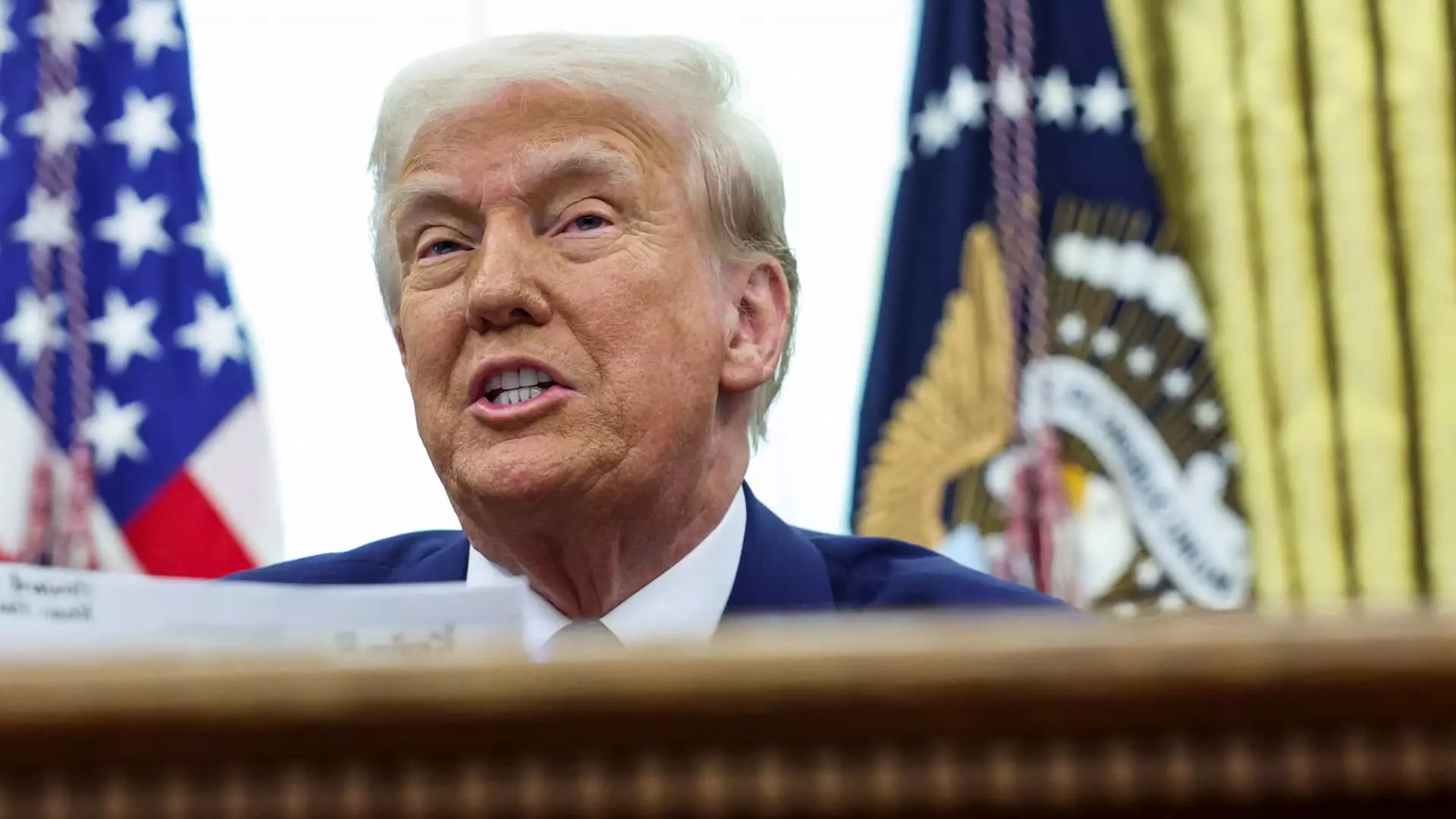In a surprising turn of events, President Donald Trump’s recent comments about U.S. defense spending have led to a significant decline in defense stocks. The president’s assertion that the United States could potentially halve its military budget has raised eyebrows and sparked concern among investors. This statement, delivered at a press conference at the White House, was contextualized within a broader discussion regarding international relations and potential dialogues with global powers such as China and Russia.
Trump articulated his stance in a compelling manner, suggesting that when geopolitical tensions ease, there could be an opportunity to reduce military expenditures substantially. “When we straighten it all out, then one of the first meetings I want to have is with President Xi of China and President Putin of Russia,” he stated, emphasizing a collaborative approach to international defense budgets. The implication of redirecting nearly $1 trillion in defense spending towards other domestic priorities caught the attention of both analysts and investors, who quickly reacted by selling off shares in prominent defense contractors.
Market Response and Stock Reactions
The immediate aftermath of Trump’s declaration saw a noticeable dip in the stock prices of major defense companies. Lockheed Martin’s shares fell by 1.3%, while Northrop Grumman and General Dynamics experienced declines of 2.6% and 2.1%, respectively. This swift market reaction underscores the fragility of investor confidence when faced with ambiguous policy directions regarding military spending. The abrupt downturn in the defense sector reflects the crucial role that consistent and predictable government policy plays in investment stability.
Trump’s history of convoluted messaging on military spending complicates the narrative further. During his 2024 campaign, Trump has consistently oscillated between advocating for an expansive and robust military and exploring avenues for cost reduction. His enlistment of figures like Elon Musk to identify cost-cutting measures indicates a more pragmatic approach to government spending, particularly at a time when the geopolitical landscape remains tense.
A Tenuous Balancing Act
Moreover, Trump’s simultaneous push for resolving the ongoing conflict in Ukraine with increased American arms sales appears at odds with his proposition to slash military budgets. While he praises the U.S. military as possessing “the greatest military equipment in the world,” the juxtaposition of this rhetoric with potential cuts raises questions about the underlying policy framework guiding his administration.
Market analysts suggest that the mixed signals being sent from the White House have left investors bewildered. Roman Schweizer, a policy analyst at TD Cowen, aptly pointed out that the current situation fosters confusion among stakeholders regarding the future of defense budgets and military strategy. In an environment as volatile as the one we are witnessing, clarity regarding Trump’s intentions will be crucial for restoring investor confidence in the defense market.
As the potential for dialogue with global rivals looms, the future of U.S. defense spending remains uncertain. This ongoing narrative will dictate both stock market reactions and broader discussions about national security and budgetary priorities in the coming months. Investors and policy makers alike will be closely monitoring these developments as they unfold.

